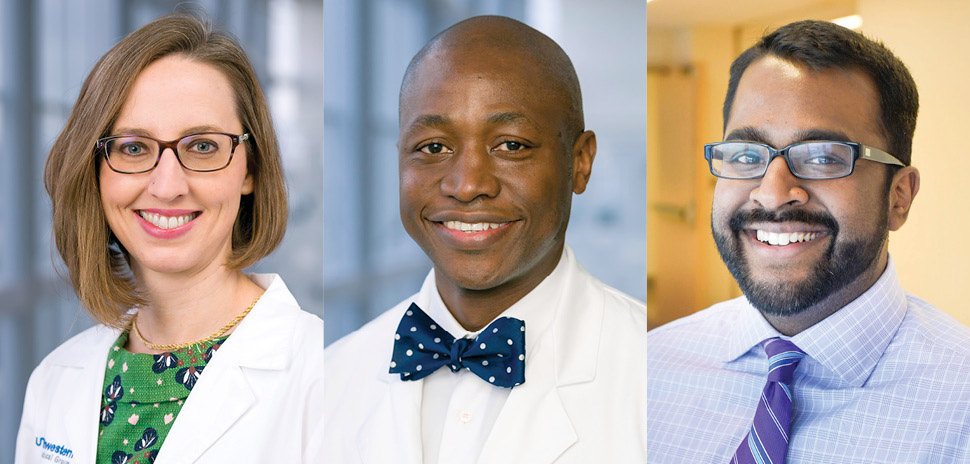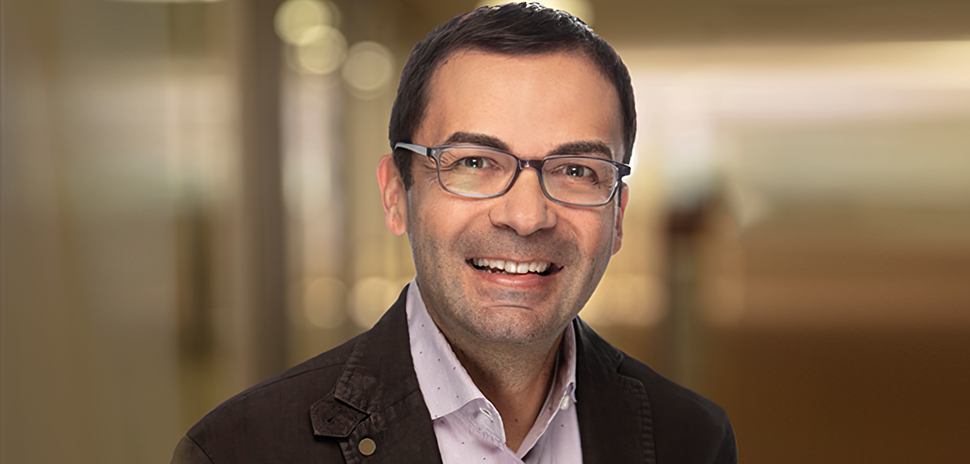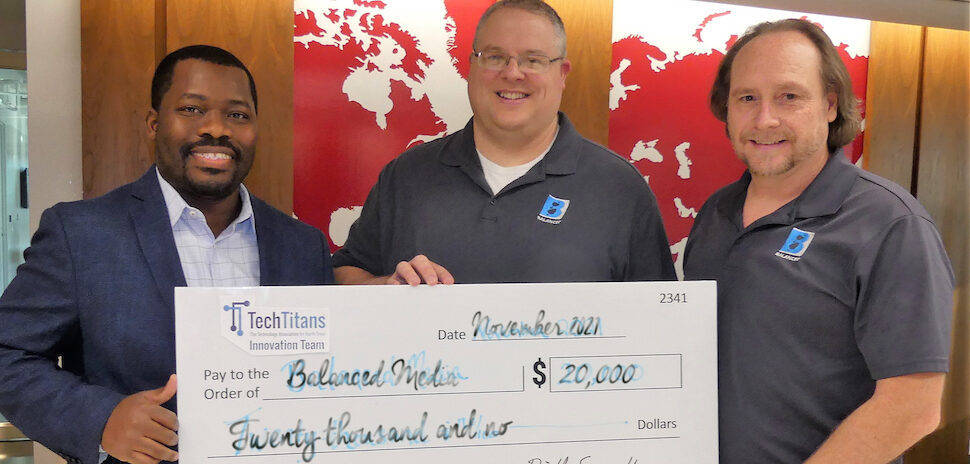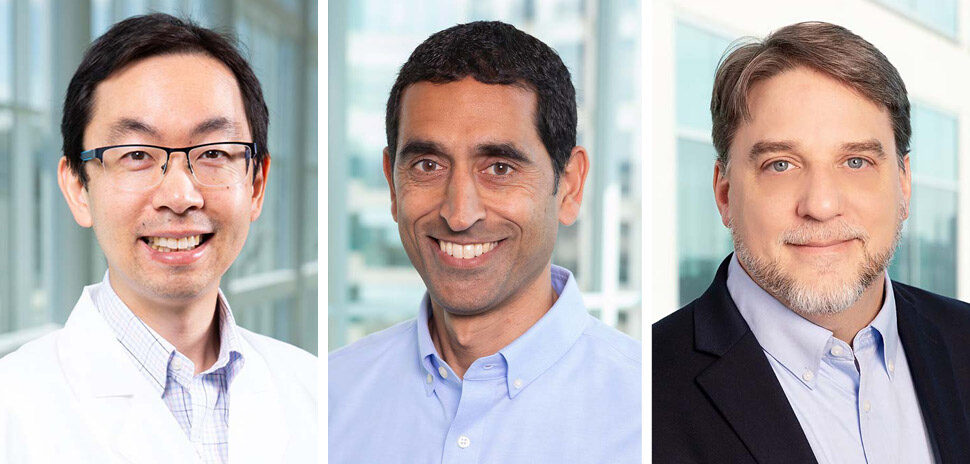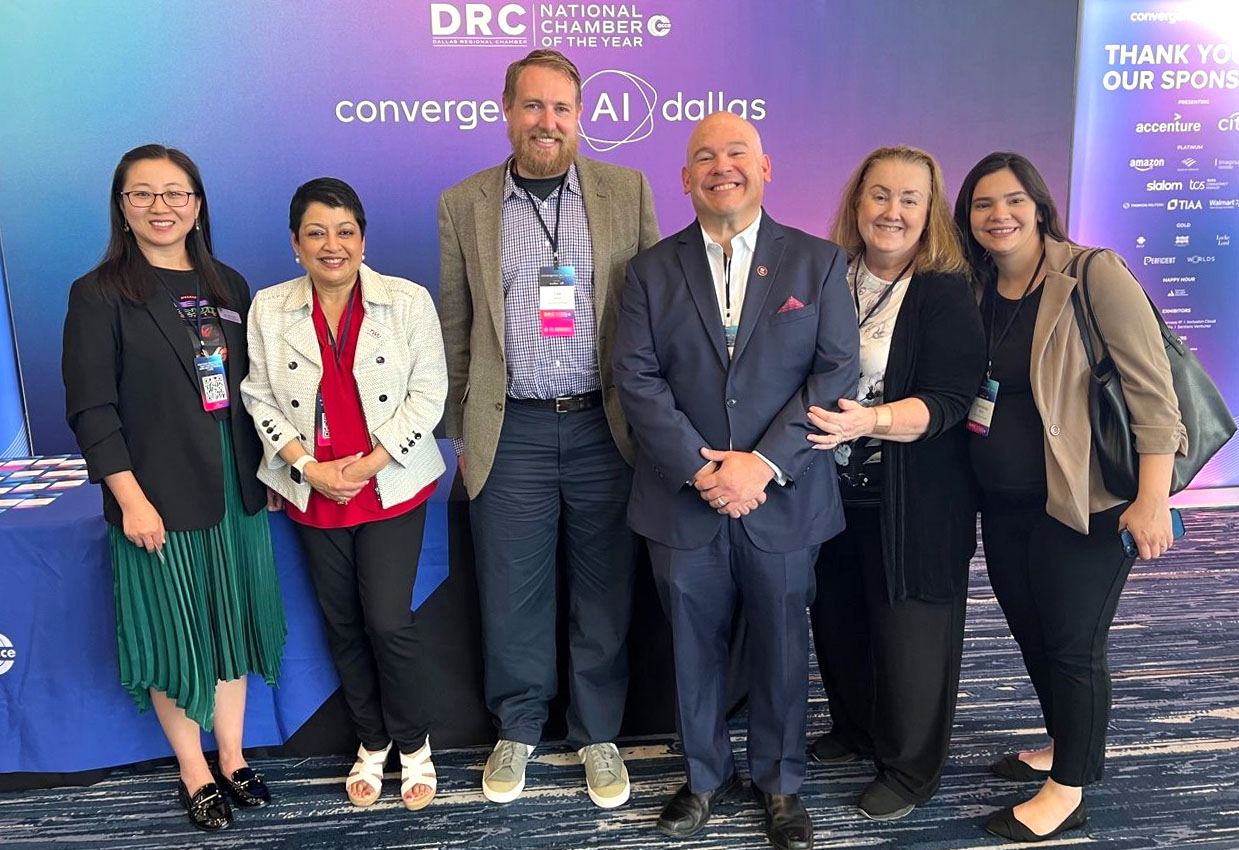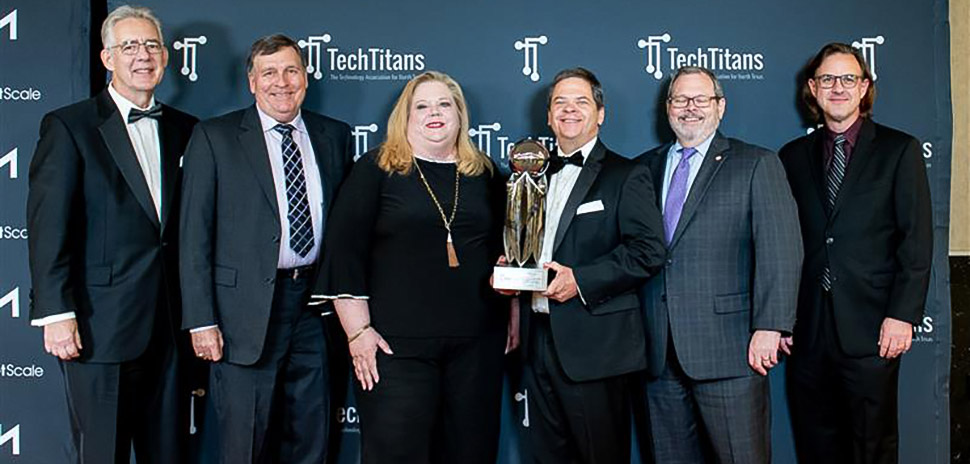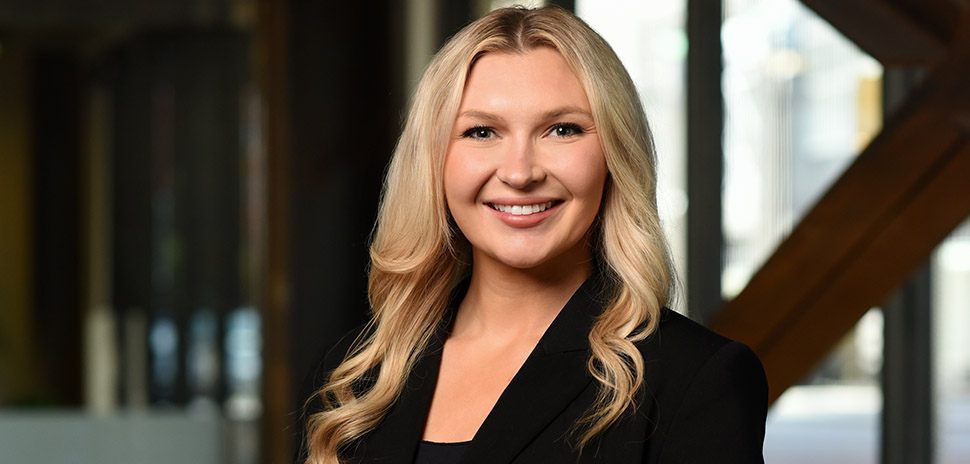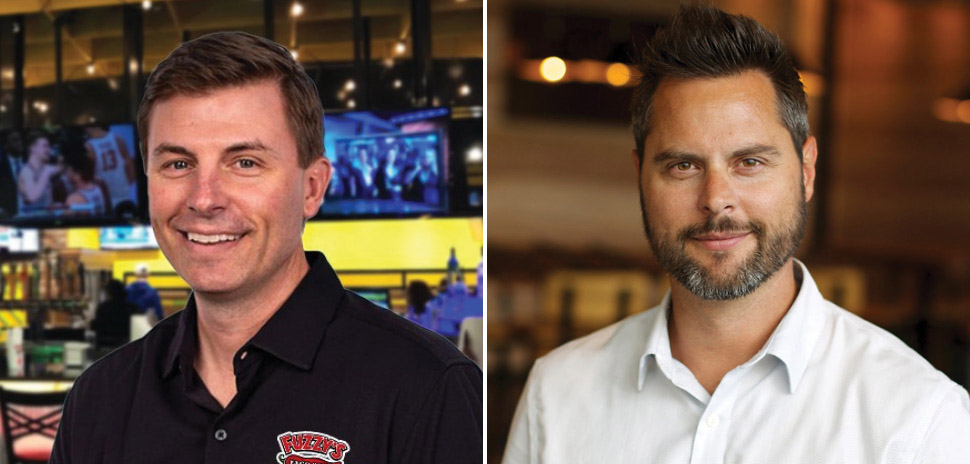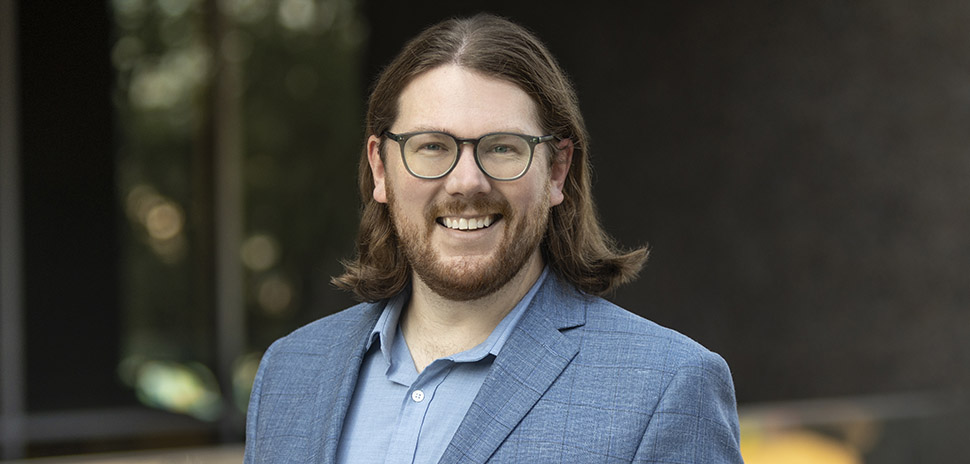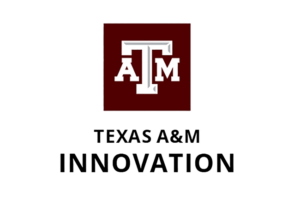One of the biggest challenges in early-stage medical research is attracting seed funding. But once that first seed is planted, a talented young doctor is often able to advance their research and attract far greater amounts of federal funding. That’s a key goal of The Cary Council, which works in partnership with the Southwestern Medical Foundation to fund early-stage researchers at UT Southwestern Medical Center.
Since its founding in 2015, the council has provided 12 grants of $50,000 each to young investigators in the fields of breast cancer, genomic technologies, infectious disease, and other important areas—resulting in $6.8 million in additional federal funding.
That multiplier effect helps the Cary Council—a committed group of young community leaders—catalyze medical innovation at UT Southwestern.
Life as a DocStar: From breakthrough research to quilting with your kid to leaving a soccer career behind
In a recent “What’s Up Doc?” virtual event, the Cary Council featured this year’s three grant recipients in a revealing Q&A session—not just about their research, but about the work/life balance of young doctors, raising kids amid a packed medical work schedule, and more.
Emily Adhikari, M.D.
Dr. Adhikari is an assistant professor in maternal-fetal medicine in the department of OB/GYN at UT Southwestern and medical director of perinatal infectious diseases at Parkland. She’s currently studying how COVID-19 affects pregnant women and their babies—and how COVID-19 vaccines can help protect fetuses.
Adhikari began her medical career as a lab technician in UT Southwestern’s pediatric endocrinology lab, where she met her future husband—who’s now a pediatric endocrinologist at Children’s Medical Center at UT Southwestern.
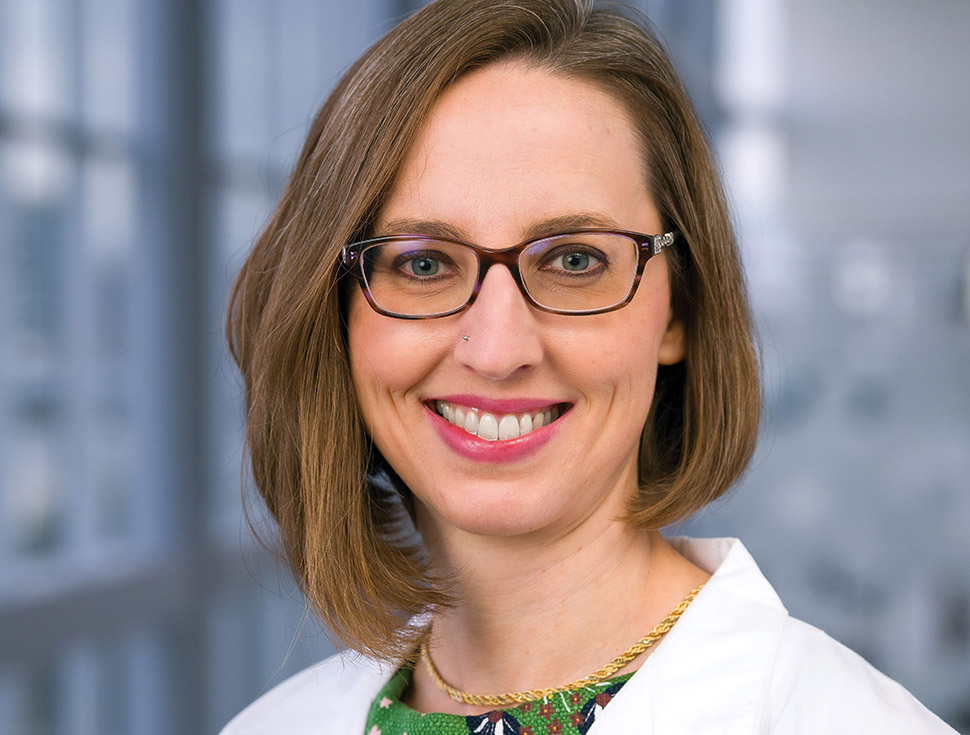
Dr. Emily Adhikari [Photo: Cary Council]
Managing work-life balance as doctors with kids
The two-physician household features kids that include 10-year-old daughter Serena, who popped up occasionally on Adhikari’s home video feed during the event, once to show off a baby quilt they’re both working on.
“I don’t think I have work-life balance,” Adhikari said during the event. “It’s all mashed together and I’m grateful to my family for understanding that. Our kids are as flexible as you can imagine. They always know that when we’re at work we’re taking care of patients and we’re doing what’s important. I’ve been taking care of COVID patients for a year and a half now. Whenever we can be home, we try to make sure that we’re devoting attention to the kiddos. And then my husband and I both go back to work after the kids are in bed. That’s our routine. 9 p.m. to midnight—that’s work time.”
She has a lot to work on—especially trying to convince women of the importance of getting vaccinated against COVID-19.
COVID-19 Delta variant causing surge of pregnant women patients
“Thanks to this Cary Council grant, we’ve been able to actually publish some of the the first objective reports” on the impact of COVID-19 on pregnant women, Adhikari said.
“This most recent surge that we think is all due to the Delta variant has been much more severe in pregnancy,” she said. “More mothers are getting sicker and requiring hospitalization. In the past year we’ve seen about 5 percent of patients diagnosed with COVID get sick enough to be admitted to the hospital. With this most recent surge, we’re seeing 10, 15, sometimes almost 20 percent of women in severe to critical illness in the hospital, who are currently pregnant. So it’s pretty alarming.”
“And they’re unvaccinated,” Adhikari pointed out. “They don’t get sick when they are vaccinated.”
Countering misinformation on COVID vaccines
Adhikari says she spends a lot of time trying to convince women—even colleagues, in some cases—to get a COVID-19 vaccine. What does she say?
“We really had to start from the ground up, because the concept of an mRNA vaccine was so new to everyone,” she said. “Because it was exotic-sounding, that was the first red flag for people, and then from there a lot of the misinformation just sort of spiraled.”
She does her best to try to counteract misinformation with “the big-picture science.”
As to the big picture of her overall research efforts, Adhikari has a goal for UT Southwestern.
“My goal—particularly with regard to this award that has been so meaningful—is to use it to ensure that there is an infrastructure in place at UT Southwestern with regard to doing maternal health outcomes research in Dallas County as an ongoing endeavor,” Adhikari said. “Particularly with regard to infectious diseases and preparing for the next emerging pathogen in pregnancy.”
“Not just knowing what the effects are of infectious diseases, but how to prepare for and prevent the next one,” she added. “So, through research and through demonstration of those clinical maternal health outcomes, I think that will help make sure that pregnancy and maternal and fetal health are really prioritized going forward.”
Aiming for funding from the National Institutes of Health
In seeking the multiplier effect of her Cary Council grant, Dr. Adhikari says she is now in the early stages of planning to apply for an NIH grant early in the next year. She adds that she has the “mentorship and infrastructure within our department to do so.”
Owoicho Adogwa, M.D., M.P.H.
Dr. Adogwa is an assistant professor in UT Southwestern’s neurological surgery department. He’s one of few surgeons in the world cross-trained in both orthopedic spine surgery and neurosurgery. His research project is in improving the treatment of older patients with complex spinal conditions. A prolific surgeon/scientist, he’s been published in many journals and has been a guest lecturer at over 160 scientific meetings.
Originally from Nigeria, Adogwa attended Duke University on a soccer scholarship and had aspirations to be a professional soccer player. But that got sidetracked when he became fascinated by medicine and entered medical school (his father is a neuroanatomist).
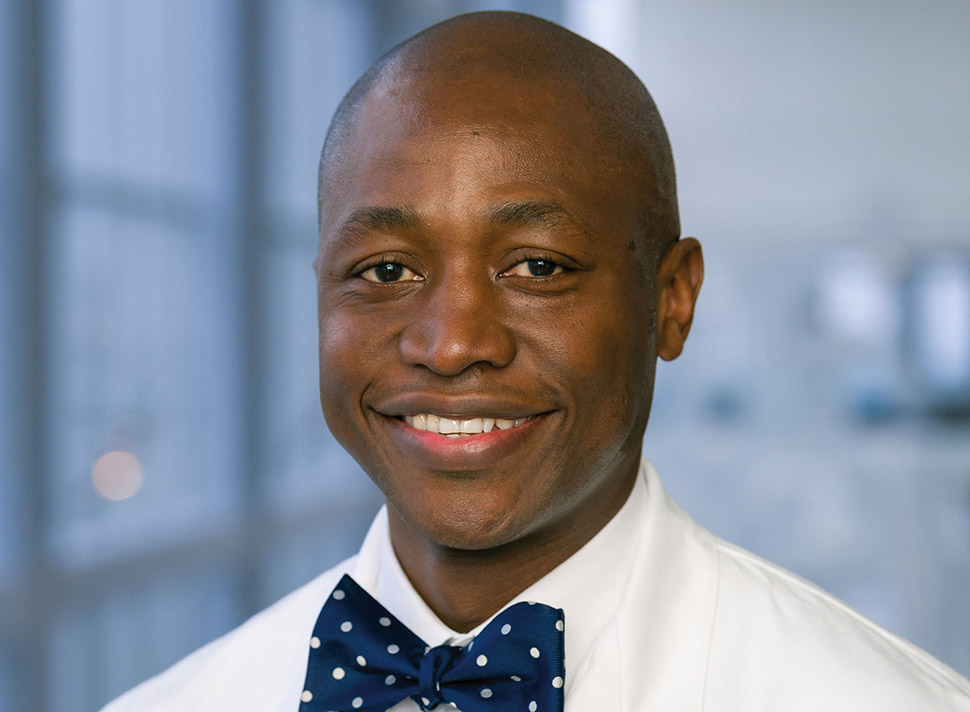
Dr. Owoicho Adogwa [Photo: Cary Council]
From soccer to a new goal: building hospitals in West Africa
His biggest goal switched from the soccer field to one day building hospitals in West Africa, which he still visits once a year for mission work.
“I learned about Dallas through my mentor in residency, Carlos Bagley, who’s director of the Spine Center [at UT Southwestern],” Adogwa said. “He discussed his wonderful experience here at UT Southwestern, which I can certainly echo. And he invited me to interview for a position and I have marked my time here ever since.”
Changing the paradigm of treating older adults with back pain
“As a spinal surgeon with an emphasis in spinal pathologies, my goal is to change the paradigm around how we take care of older adults with back pain,” Adogwa said of his research. “If you look at the epidemiologic studies, all of us on this call at some point in our life will have back pain.”
Adogwa’s clinical and research interest is focused on adults aged 65 who have back pain along with radiographic evidence of spinal pathology. The questions he’s pursuing: Can we align the treatments that we offer as surgeons to the patient’s priorities? Can we understand what they’re willing and unwilling to do? And can we change the current processes around that care?
“Currently, most of those discussions are centered around risk and benefit profiles and do nothing to assess the patient’s motivations, their interest, and what they’re willing and unwilling to do,” Adogwa said. “With the funding from the Cary Council, we’ve been able to really get some interesting data that actually changes how we interview and speak with these patients in clinic.”
Applying for a GEMMSTAR Award, planning a control trial
“This Cary pilot funding was incredibly invaluable in allowing us to collect some of the pilot data that we need for funding that we are actively applying for,” Adogwa said.
“Later on this year we’ll be applying for a GEMMSTAR award and then likely a cluster-randomized control trial—changing the way patients are educated in surgical clinics,” he added. (GEMMSTAR stands for Grants for Early Medical/Surgical Subspecialists’ Transition to Aging Research.)
Samuel John, M.D.
Dr. John is an assistant professor in the UT Southwestern pediatrics department and an attending physician in pediatric hematology and oncology at Children’s Health Dallas and Parkland Memorial Hospital.
Recognized for his research on blood cancers in children, John investigates how immunotherapy and cell therapy can improve cancer treatment. He serves as the program leader for the CAR T-Cell therapy program at UT Southwestern Children’s Medical Center and is principal investigator for pediatric cell therapy clinical trials for leukemia and certain solid tumors.
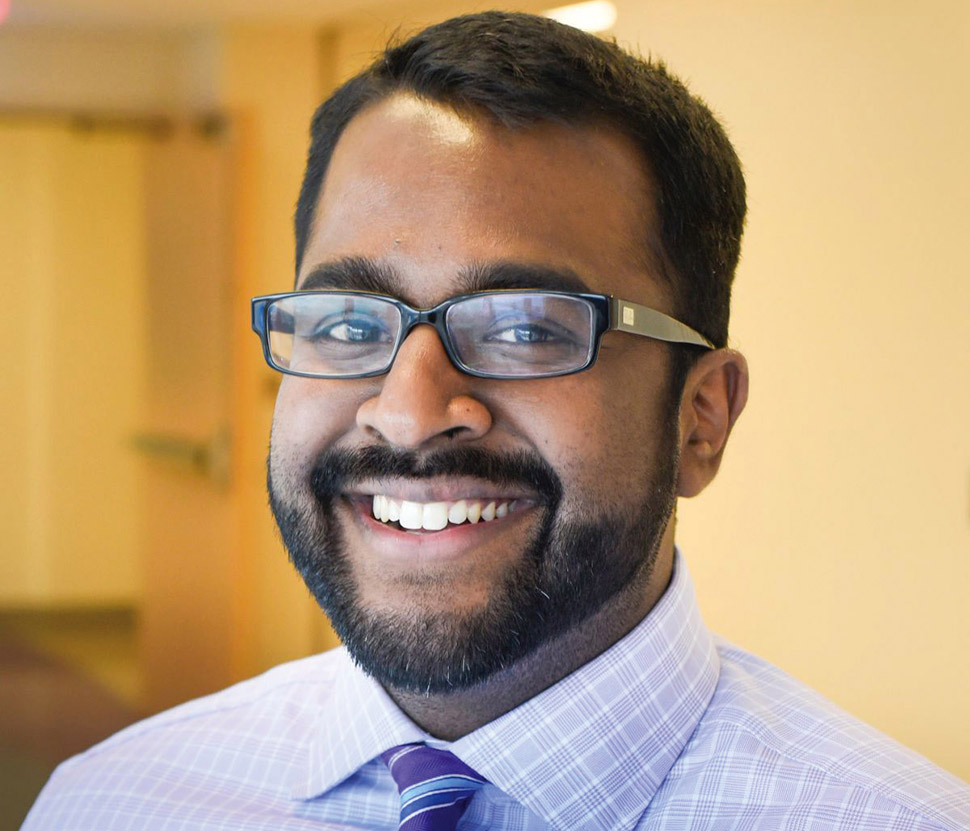
Dr. Samuel John [Photo: Cary Council]
Like Adhikari, John does his best to juggle a busy physician-researcher’s life with a home life that includes his three-year-old daughter Melody and 10-month-old son Isaiah.
“Which is why I’m actually still at my office at work right now,” he said to his computer screen, “because I don’t think I would get a word in edgewise if I was at home with them. But yeah, it’s been an amazing kind of busy having the two of them around.”
Brooklyn-born John grew up on Long Island with an ICU nurse for a mother. He attended school in upstate New York before coming to Dallas for his residency fellowship and staying on at UT Southwestern.
“My journey here to Texas was really looking for a program that would train me really well in pediatrics,” he said, saying that New York has lots of good programs “but not necessarily a good standalone pediatric hospital,” and UT Southwestern Children’s Medical Center “stood out at the top of the list.”
Developing cell therapies for a variety of cancers
“My research is focusing on developing new therapies—specifically cell therapies—for a variety of malignancies,” John said during the event. “Obviously my heart is in pediatric cancers. In total funding, pediatric cancer really gets a tiny amount of what big budgets are from the NIH or from the NCI. Less than 4 percent of that is actually dedicated to pediatric cancer research.”
“Cell therapy has been a really great new avenue to be able to bring treatments to groups of kids who don’t otherwise have other treatment options,” John explained. “So we’ve actually developed a new cell therapy for a difficult-to-treat disease called AML—acute myeloid leukemia—which we’re really excited about.”
His research so far has led to exciting results.
“We’re seeing really amazing results in the lab,” he said, so much so that he hopes to start clinical trials within the next year to a year and a half.
“That’s my immediate goal. It’s what we focus a lot of our efforts energies on, day in and day out,” he said. “And the support that we’ve had here from the Cary Council, definitely helps to push that forward.”
“We’ve got a great cancer program and we want to be able to add to that with a great cellular therapeutics program within our cancer division,” John said. “All of our patients deserve that chance at a cure. And that’s what we hope to do—to bring novel cell therapies to that patient who doesn’t otherwise have a treatment option.”
Applying for CPRIT funding
Dr. John is preparing to seek the funding he will need for his research. “I plan to apply for CPRIT funding in the upcoming funding cycle,” he said. “The initial data generated through support from The Cary Council will strengthen my future grant applications.”
The Cary Council is also supporting brain research
Beyond its support for young investigators at UT Southwestern, The Cary Council recently gave another special gift. During the “What’s Up Doc?” virtual event, the council’s Steering Committee Chair Amanda George spoke about it.
“To celebrate five years of impact with additional funds raised, we were able to make a special gift of $50,000, fully matched by the Southwestern Medical Foundation, for a total impact of $100,000 to support a fellowship at the Peter O’Donnell Jr. Brain Institute,” George said.
The fellowship will help efforts to recruit and train the best and brightest brain specialists by providing a sustainable funding stream. George said that some fellows will also go on to become UT Southwestern faculty.
![]()
Get on the list.
Dallas Innovates, every day.
Sign up to keep your eye on what’s new and next in Dallas-Fort Worth, every day.










